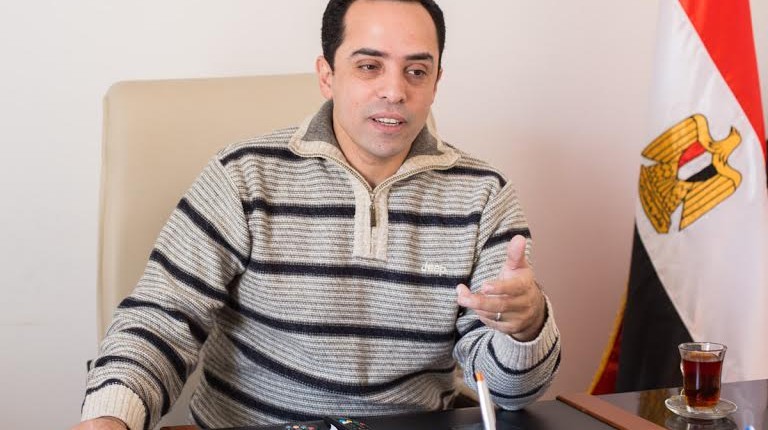By Peter Sutherland
LONDON: Europe’s reaction to the historic revolutions in North Africa has vacillated between exhilaration and fear. The natural instinct to celebrate and support democratization across the Mediterranean has been tempered by concerns that the crisis will spill onto European shores.
A few leaders have invoked the post-World War II Marshall Plan as a model for large-scale European development assistance for the region, the aim being to ensure the sustainability of a democratic transformation and generate long-term political and economic benefits for Europe. But the mainstream reaction has been much more fearful: media and politicians throughout the European Union are obsessing about the threat of waves of migrants reaching their borders.
Such a threat should not be taken lightly. Already, the controversy over Tunisian migrants in Italy has started to fray the political underpinnings that allow free movement in the Schengen area. The war in Libya, meanwhile, could lead to many more thousands of civilians fleeing the violence and needing international protection.
So far, nearly 400,000 people have filled refugee camps in Tunisia and Egypt, and an estimated 20,000 have reached Italy’s shores. Dealing with any surge of asylum seekers will require the EU to strengthen its capacity to offer temporary protection — and possibly to reconsider how its overall asylum system works. That the Union has been moving towards a common approach to border security, most visibly with the expansion of the Frontex border agency, will be of help here.
But if Europe allows itself to be consumed by the short-term crisis, it risks squandering an extraordinary long-term opportunity. By using this moment strategically and wisely, the EU would have a chance to reframe its relationship with the southern Mediterranean (as it is being redubbed) to promote generational development and growth in ways that can address Europe’s interests, too.
The best way to allay European fears and prevent uncontrolled migration is to establish positive incentives, and the practical means, for potential migrants to stay home — most significantly by creating jobs in the southern Mediterranean. After all, the vast majority of migrants leave home reluctantly.
Yet, at the same time, as its baby boomers retire en masse in the coming decade, Europe will need workers at all skill levels. The southern Mediterranean can be the source of this labor, given its huge youth bulge. The trick will be to ensure that migrants are given the chance to acquire the skills that European employers need, and that they have the chance to move in a safe, legal, and orderly fashion.
Policies that help train the next generation of North Africans, and allow them to circulate more freely between Europe and their home countries, are a much smarter solution than the current approach, which sustains illegal migration without meeting Europe’s labor needs. This is an argument not for more migration, but for better migration — well thought out and planned.
Of course, if Europe helps North Africa build sustainable, prosperous democracies, this would be the greatest long-term deterrent to illegal migration of all. It is worth recalling that 50 years ago, the largest immigrant populations in northern Europe hailed from Italy, Greece, Portugal, and Spain. As those countries prospered, the émigrés returned home: their countries eventually became engines of European growth, and major export markets for Germany, France, and other EU member states. The same arc of development can and should be limned for the southern Mediterranean.
Fortunately, research on migration and development in recent years has helped foster a range of policy tools that Europe should be considering. Experts and policymakers have been devising many innovative programs, including low-cost remittances from migrants to their home countries, efforts to strengthen ties between diasporas and their homelands, and initiatives that help skilled migrants find proper employment, so that qualified surgeons are not driving taxis.
In thinking about how to reframe the EU’s relationship with the southern Mediterranean, we should draw on these ideas as expansively as possible. In order to connect our societies in positive ways, we should seriously consider liberalizing trade regimes, opening new avenues for legal migration, and vastly expanding the number of students from the region who come to Europe for education and professional training. After all, it was the youth of North Africa, both at home and abroad, whose notions of freedom helped bring down dictators in Egypt and Tunisia. Their talents and energy should now be cultivated and harnessed to help rebuild their societies.
Responding to the challenges and opportunities of this moment demands the creation of strong partnerships among states, international institutions, and non-governmental actors. Since its inception in 2006, the Global Forum on Migration and Development (GFMD) has provided a much-needed platform for dialogue among states and other stakeholders on issues related to migration and development. Its annual plenary sessions facilitate the exchange of experiences and good practices in a way that transcends traditional “North-South” conflicts.
Among other changes that it has spurred, the GFMD has compelled governments to understand migration more holistically, and to develop a “whole of government” approach to addressing the opportunities and challenges that it poses. It also has highlighted the importance to development of protecting migrant rights and of fighting illegal migration.
The Global Forum has done its job by generating and fostering ideas that can make migration benefit the development of countries of origin and destination. It is high time that these ideas are implemented. There could be no greater opportunity for doing so than this strategically crucial window in the history of Europe and the southern Mediterranean. If we do not seize this moment for action, history could well pass us by.
Peter Sutherland is Special Representative of the United Nations Secretary-General for Migration, former Director General of the WTO and a former EU Commissioner. This commentary is published by DAILY NEWS EGYPT in collaboration with Project Syndicate (www.project-syndicate.org).

